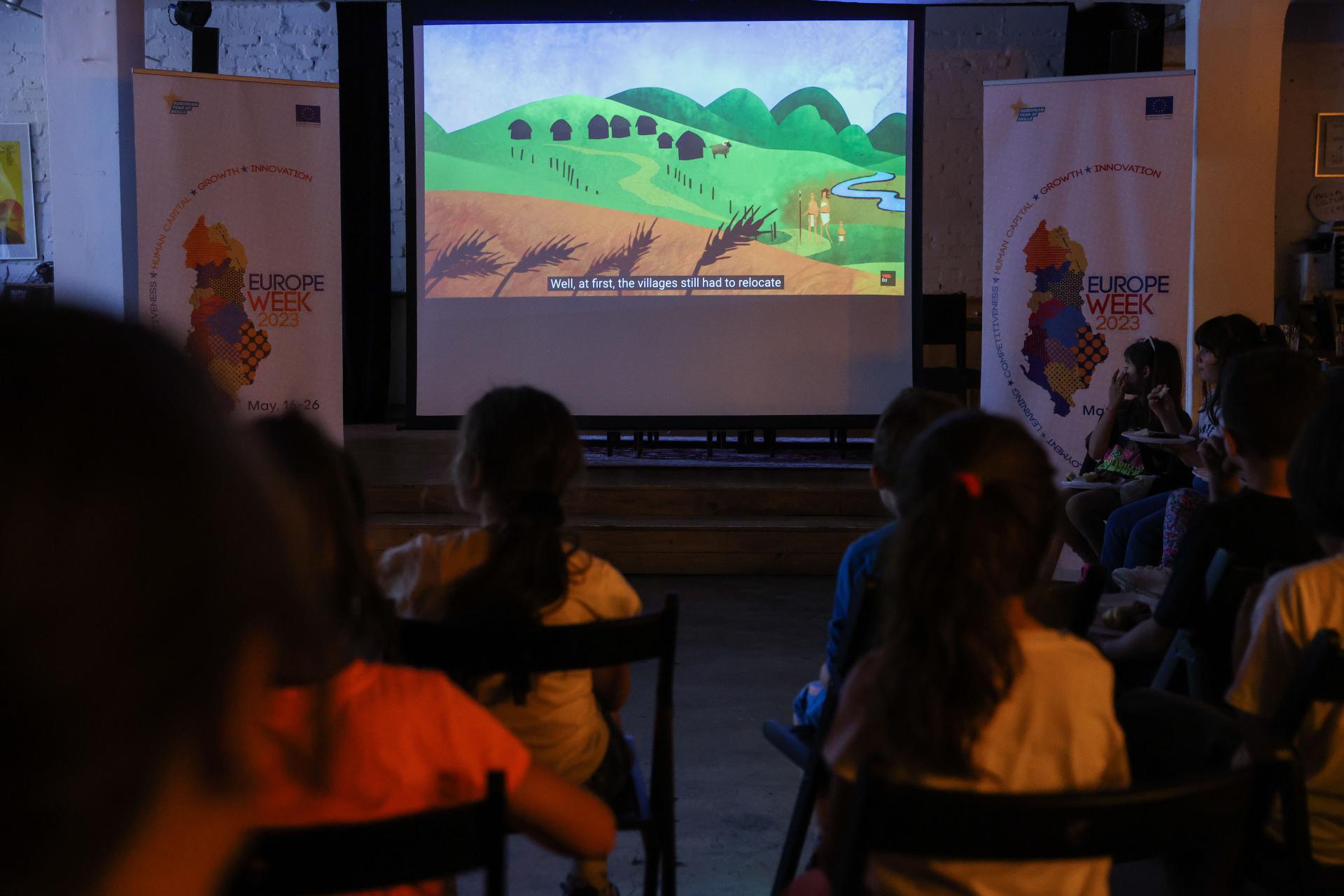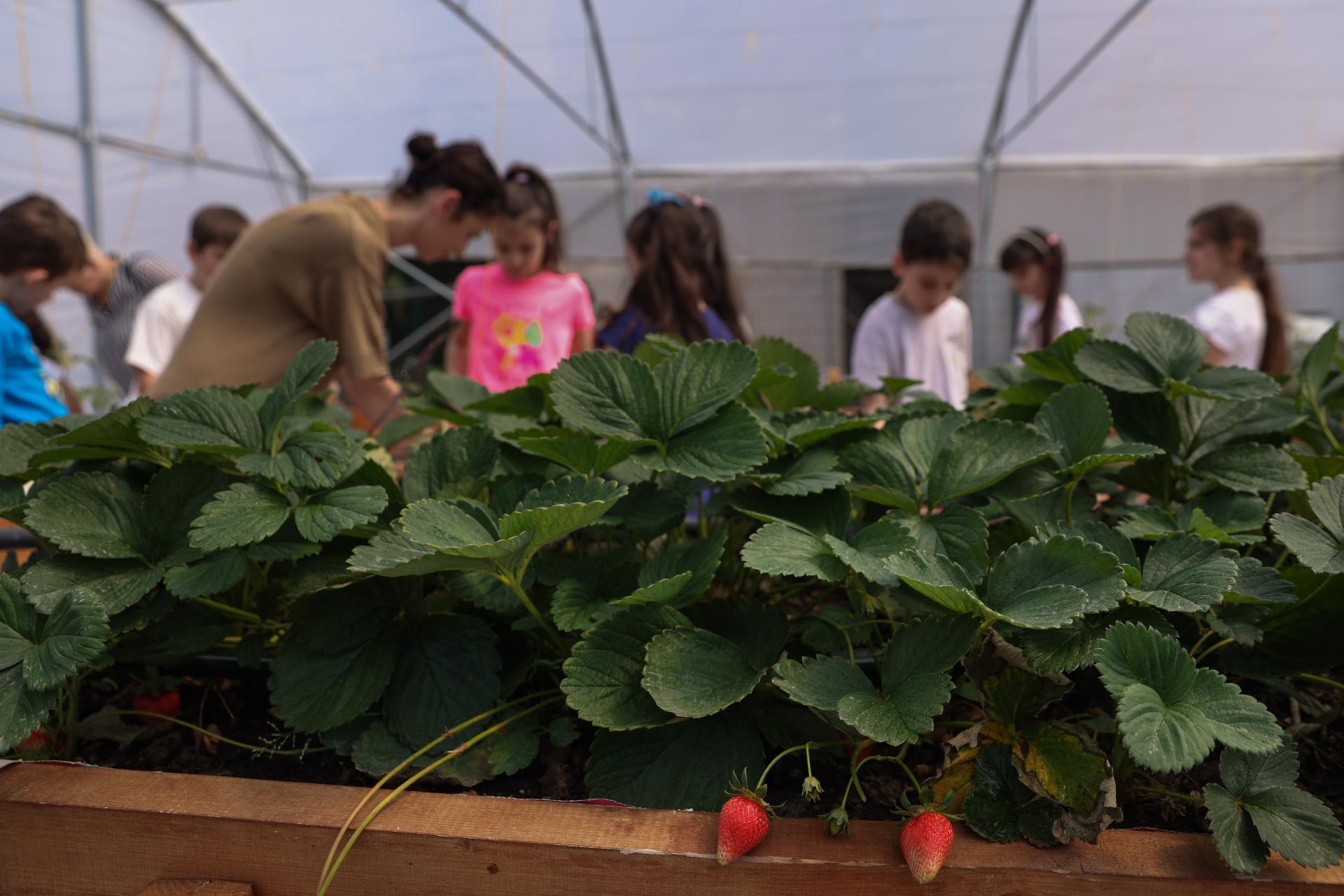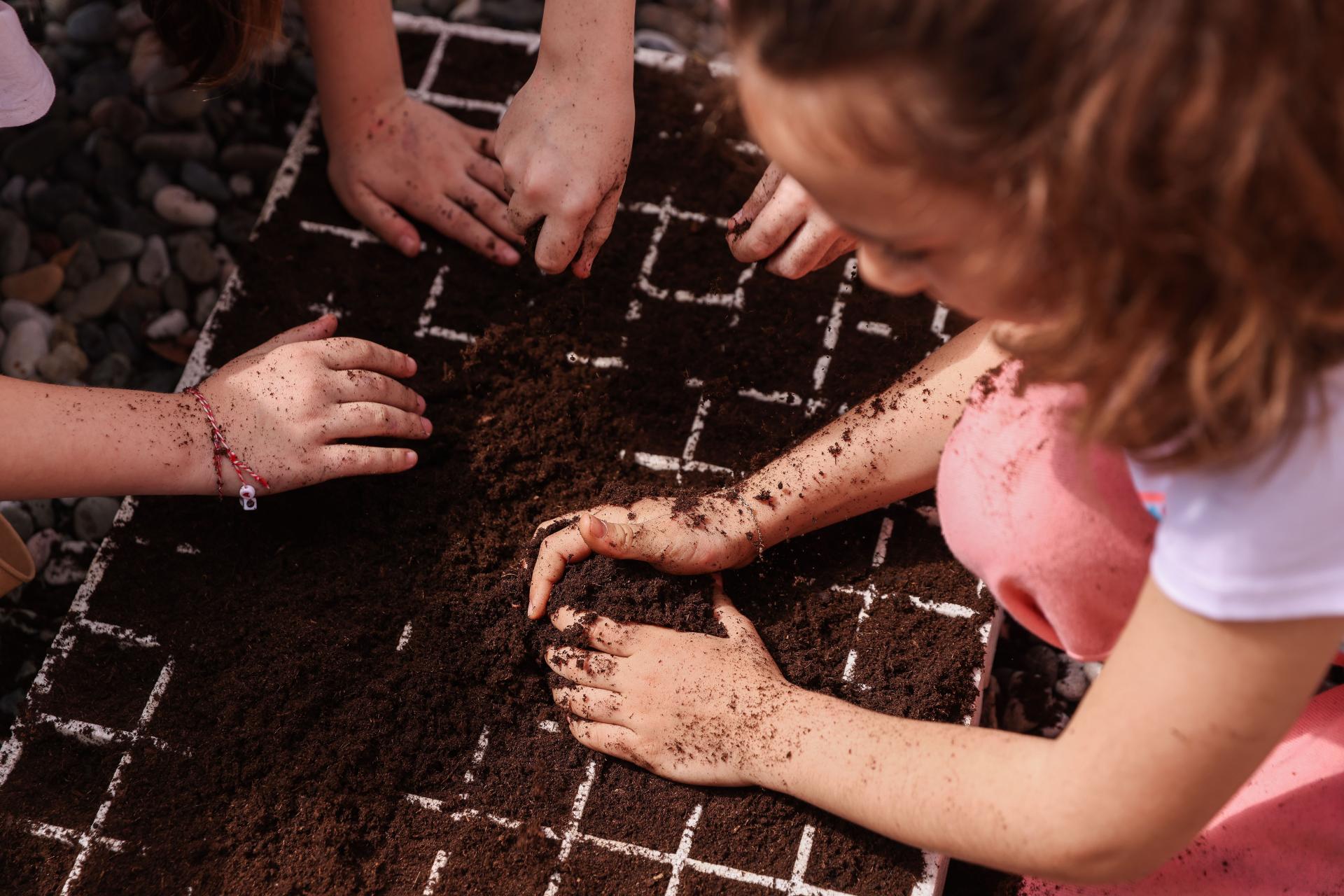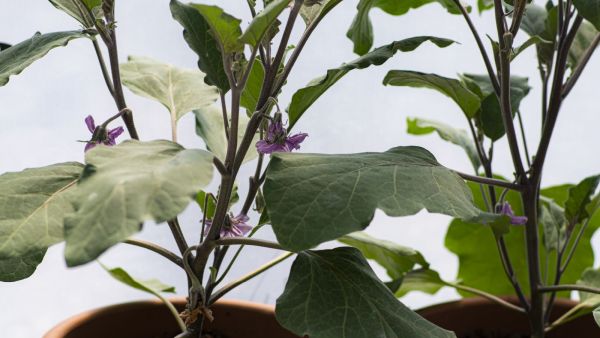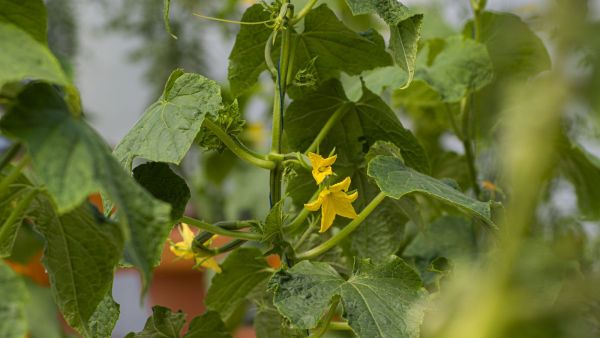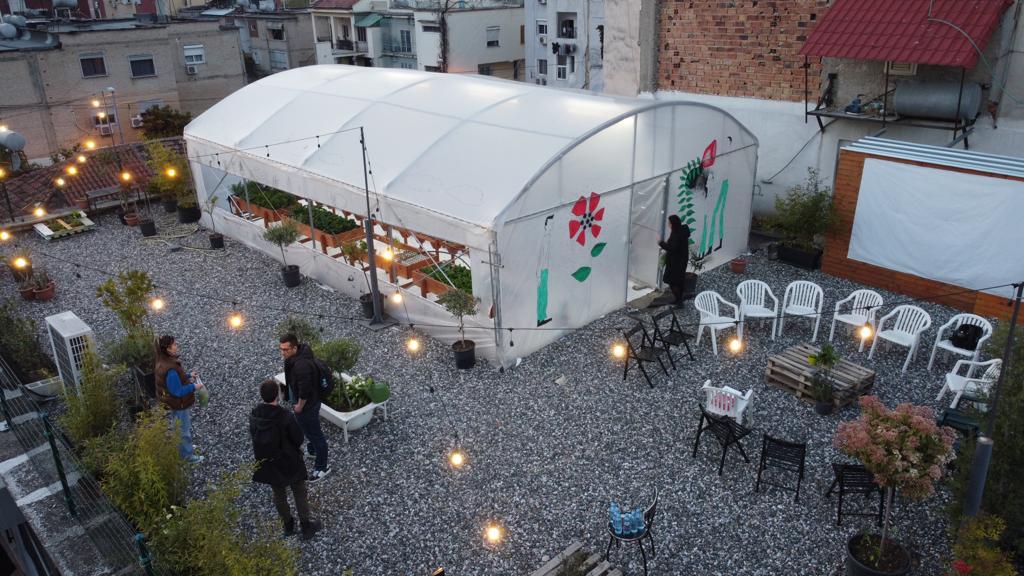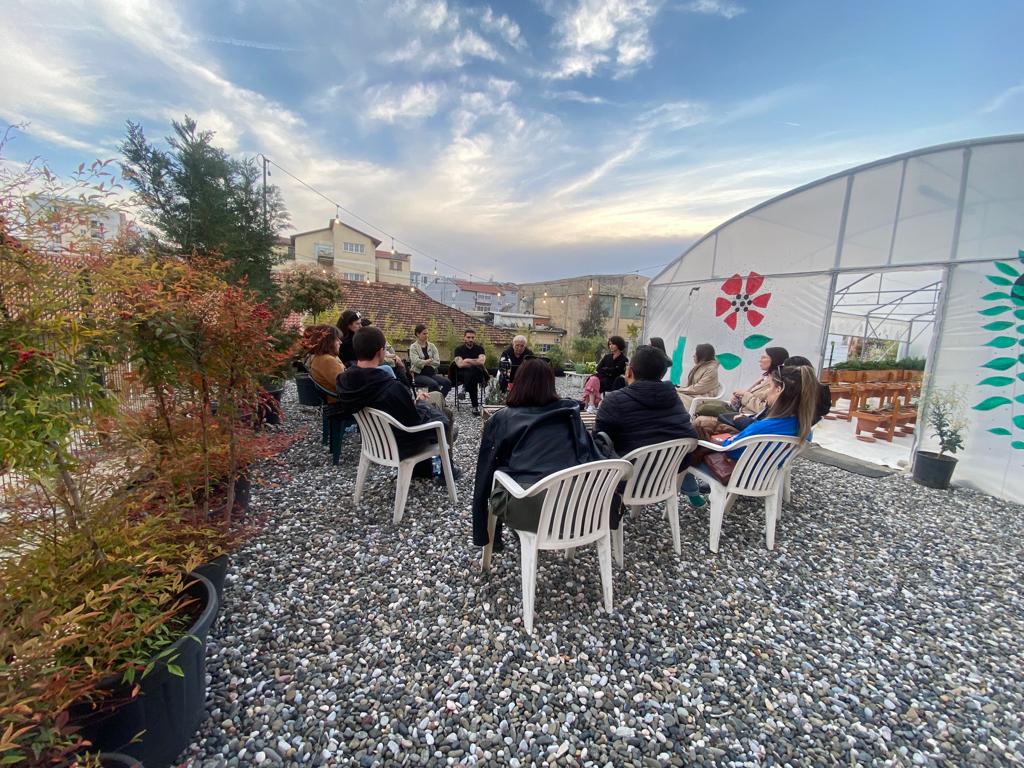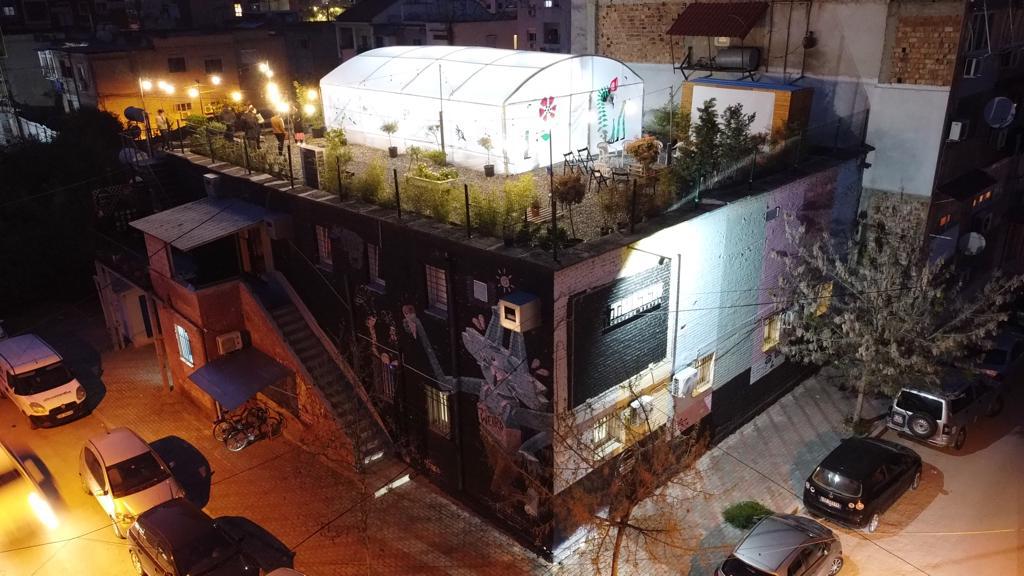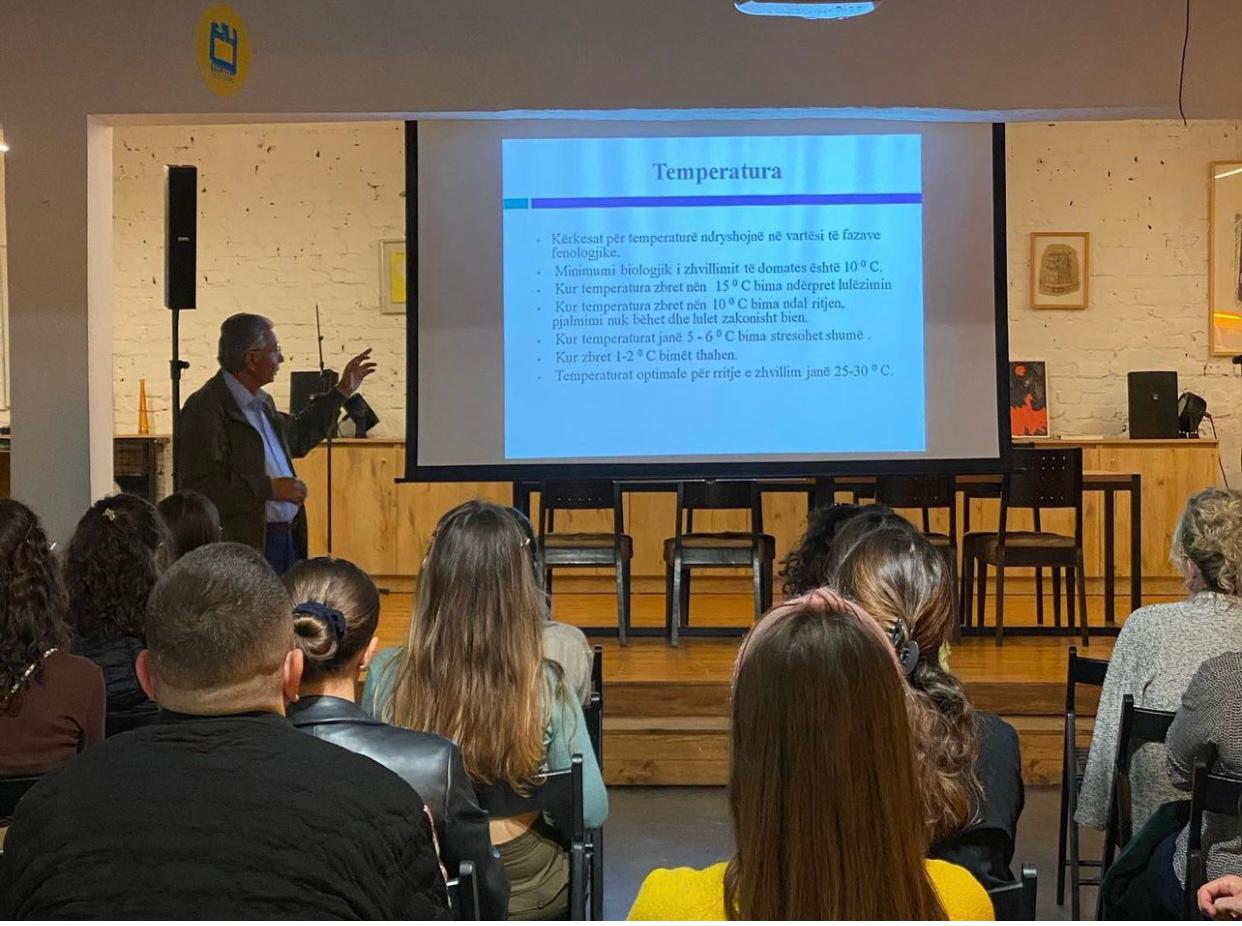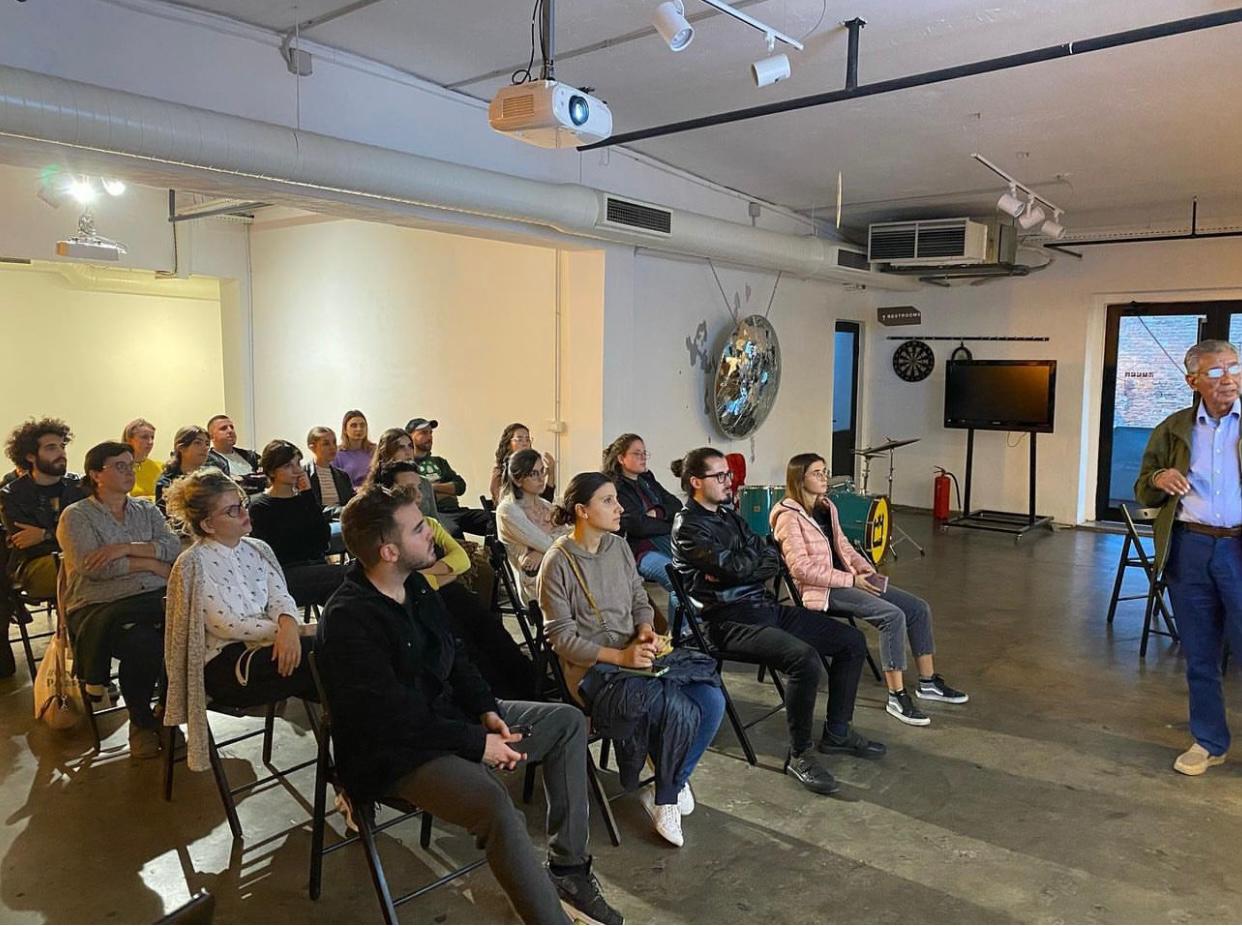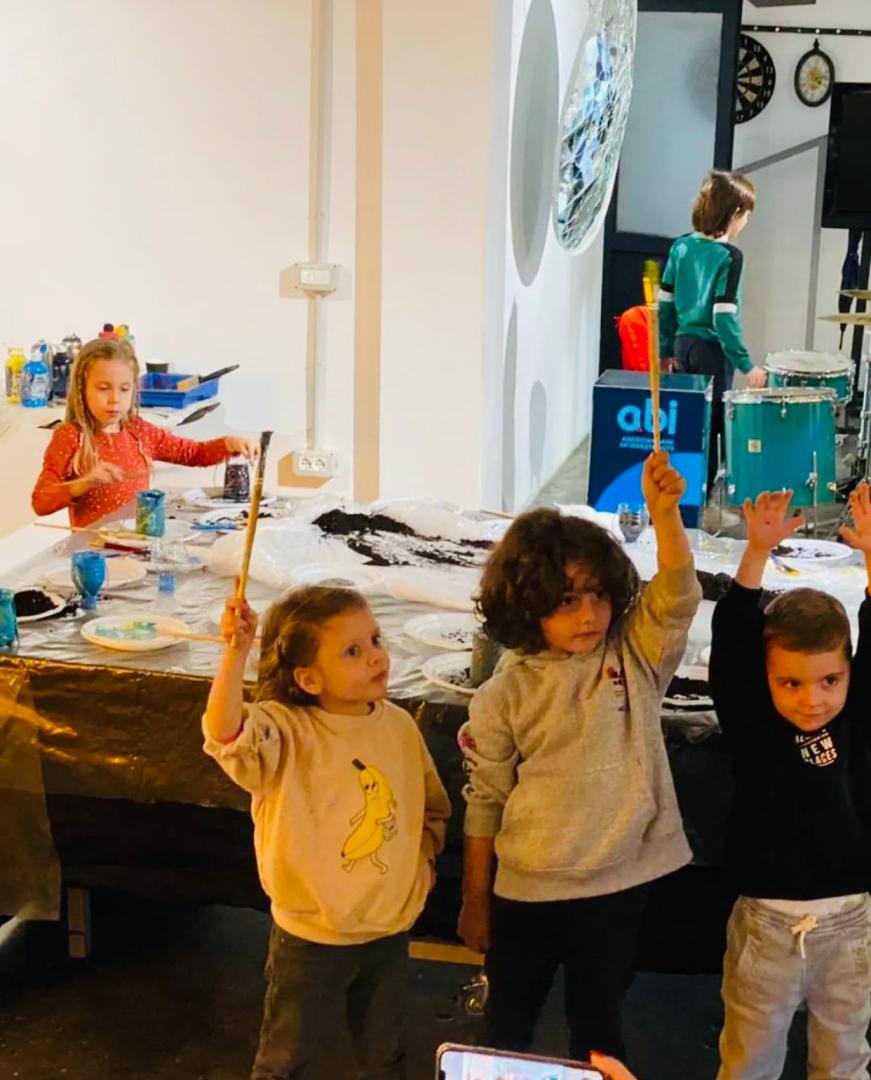Tulla Urban Farming
Basic information
Project Title
Tulla Urban Farming
Full project title
Tulla Urban Farming School
Category
Reconnecting with nature
Project Description
Tulla Urban Farming School is a non-formal education program in Albania, located at TULLA – Culture Centre, established in 2021. Its primary goal is to establish an Urban Farming School that equips young people with the skills necessary for farming and agriculture in urban environments, such as rooftops and terraces. Initially, we began by offering Urban Farming presentations, workshops, and courses that cover the fundamentals of agriculture.
Geographical Scope
Local
Project Region
Tirana, Albania
Urban or rural issues
Mainly urban
Physical or other transformations
It refers to other types of transformations (soft investment)
EU Programme or fund
No
Description of the project
Summary
After the construction of the greenhouse on the rooftop, we planted 100+ hundred seeds of different vegetables. The planted vegetables were suitable for the season and we chose plants that could easily grow in balconies such as long-day vegetables and short-day vegetables and immediately began the implementation of the educational program. On December 21, 2021 Tulla - Culture Center we announced the first call for application for Urban Farming School and we received more than 300 applications. 1first lecture took place on March 4, 2022 with 50 participants from 21–50 years old, most of them women.
The most important goal of the project was to give interested participants the knowledge about the planting process and how to transform an urban space into a green space, where they can grow their own food. More than 100 participants followed our courses for the years 2021-2022 and our target group where students, women and the marginalized community. Urban Farming School managed to create a strong community interested in Farming. This initiative is the first step to grow and expand the Urban Farming in Tirana and Albania.
The most important goal of the project was to give interested participants the knowledge about the planting process and how to transform an urban space into a green space, where they can grow their own food. More than 100 participants followed our courses for the years 2021-2022 and our target group where students, women and the marginalized community. Urban Farming School managed to create a strong community interested in Farming. This initiative is the first step to grow and expand the Urban Farming in Tirana and Albania.
Key objectives for sustainability
Social Sustainability - Community engagement in farming courses and their involvement in this food, environmental, and cultural initiative is a visible factor in the sustainability of this project.
Environmental Sustainability - Through the practices and tools offered by Tulla Urban Farming experts, the project has become an important contributor to environmental sustainability.
Long-Term Impact - For the past 2 years, Tulla Culture Center has continued to receive interest from the community for participation in this project, as evidenced by applications and participant lists, etc.
Environmental Sustainability - Through the practices and tools offered by Tulla Urban Farming experts, the project has become an important contributor to environmental sustainability.
Long-Term Impact - For the past 2 years, Tulla Culture Center has continued to receive interest from the community for participation in this project, as evidenced by applications and participant lists, etc.
Key objectives for aesthetics and quality
Participants in the Tulla Urban Farming courses have gained valuable insights into the theoretical principles of urban planting. These courses have equipped them with knowledge about how to cultivate crops in urban spaces effectively. The greenhouse has played a pivotal role as a practical learning laboratory for these participants. Here, they have had the opportunity to put their theoretical knowledge into action. The significance of this experience extends beyond the realm of theory and practice. It is closely intertwined with the myriad benefits associated with urban planting. These benefits encompass not only the production of organic food but also the promotion of an active and healthier lifestyle among citizens in Tirana. By engaging in urban farming through this program, participants have been given a chance to break away from sedentary habits and transition towards a lifestyle that fosters improved physical and psychological well-being. This integration of theory, practice, and positive lifestyle change has become a central tenet of the Urban Farming courses, enriching the lives of those involved.
Key objectives for inclusion
The project "TULLA Urban Farming School" has shown a strong commitment to inclusivity and involving a wide range of groups in the community. Some key points that can be highlighted in your explanation are:
Inclusivity and Diversity: The educational program of Urban Farming has followed an inclusive approach, including the unemployed, women with various responsibilities, pensioners, and professionals from different fields not necessarily related to art. This serves to create a rich and diverse environment.
Integration of Art and Nature: Our initiative to bring visual art and music to the focus of the urban farm school brings a unique fusion of art and nature. This hybrid can offer rich experiences that involve human interaction, nature, and artistic expression.
Involvement in Various Activities: Through our cultural organization, you have offered various participatory opportunities for the community, ranging from cultural events to workshops for children and individuals with mental disabilities. This shows dedication to the inclusion of all community members.
Psychological and Physical Support: The initiative to provide a unique environment where citizens can have direct contact with nature and people has had a positive impact on their psychological and physical well-being. Efforts have been made to create a significant source of emotional and physical support for individuals who may need this type of experience.
Improvement of Quality of Life and Social Progress: Through the Urban Farming School in Tirana, you have contributed to the development of the community in social and economic aspects. Socially, by meeting people together every Thursday to share their experiences not only about plants but also to create human connections. Economically, by teaching how even in a small urban space, planting can provide food for the family.
Inclusivity and Diversity: The educational program of Urban Farming has followed an inclusive approach, including the unemployed, women with various responsibilities, pensioners, and professionals from different fields not necessarily related to art. This serves to create a rich and diverse environment.
Integration of Art and Nature: Our initiative to bring visual art and music to the focus of the urban farm school brings a unique fusion of art and nature. This hybrid can offer rich experiences that involve human interaction, nature, and artistic expression.
Involvement in Various Activities: Through our cultural organization, you have offered various participatory opportunities for the community, ranging from cultural events to workshops for children and individuals with mental disabilities. This shows dedication to the inclusion of all community members.
Psychological and Physical Support: The initiative to provide a unique environment where citizens can have direct contact with nature and people has had a positive impact on their psychological and physical well-being. Efforts have been made to create a significant source of emotional and physical support for individuals who may need this type of experience.
Improvement of Quality of Life and Social Progress: Through the Urban Farming School in Tirana, you have contributed to the development of the community in social and economic aspects. Socially, by meeting people together every Thursday to share their experiences not only about plants but also to create human connections. Economically, by teaching how even in a small urban space, planting can provide food for the family.
Results in relation to category
Tulla Urban Farming School has successfully conducted planting courses in urban farms for about two years. In the two modules of the program, approximately 150 hours of theoretical and practical training have been completed. About 100 citizens have directly benefited from this, and around 60 of them have been certified for the successful completion of the courses we have conducted. Additionally, as other activities, we have organized urban planting workshops with children. The direct beneficiaries have been citizens and young people belonging to marginalized groups, particularly women. The indirect beneficiaries of this project have been the entire community of the capital city of Tirana. Such an initiative always raises awareness within the community about the importance of green spaces and organic food on our tables.
How Citizens benefit
Through Urban Farming courses, we have managed to raise awareness about the importance of functioning as a community. In Tirana, recent constructions have almost eradicated green spaces. However, through this initiative and others, we can acquaint citizens with options for creating gardens in urban spaces. Collective community awareness can serve in the future for reflection and reaction to everything happening with the takeover of urban spaces by buildings. The sustainability brought about by such an urban initiative from our organization, but not only ours, can provide citizens with a good example to strengthen their role and all means to react to the protection of common spaces. The role and level of involvement, the direct engagement of citizens in Urban Farming courses, participation in decision-making, and practical events enable citizens to undertake other important initiatives for the community.
Physical or other transformations
It refers to other types of transformations (soft investment)
Innovative character
Tulla Urban Farming project stands out for its innovative character compared to mainstream actions in the field of urban farming and community development. Here are key aspects highlighting its innovativeness: Community-Centric Approach, unlike traditional urban farming initiatives, Tulla focuses on empowering the community through direct involvement in the design and creation of urban gardens. This approach fosters a sense of ownership and responsibility among community members, creating a more sustainable and resilient urban farming model. Holistic Education, The project integrates practical and theoretical knowledge, covering not only the technical aspects of planting but also environmental, social, and nutritional dimensions. Participants gained a comprehensive understanding of urban farming, promoting a holistic and informed approach to sustainable agriculture. Focus on Organic Techniques, the emphasis on teaching completely organic techniques for planting and disease prevention distinguishes the project from conventional methods. Participants not only contribute to environmental sustainability but also gain skills that align with the growing demand for organic and sustainable farming practices. The project's plan to distribute urban farming practices to schools and design gardens for wider implementation showcases a long-term and scalable vision. By extending our initiative to schools, the project has the potential to influence future generations, fostering a culture of sustainability and community engagement.
Disciplines/knowledge reflected
Our main focus has been on providing our participants with the capacity to conceptualize and create an urban garden, from establishing a suitable planting space to the types of crops that should be planted. We teach participants all the parameters of planting and protecting plants from diseases through completely organic techniques. We have collaborated with local experts who have brought all their experience on agriculture and the importance of organic produce in today's world. Our collaboration with agriculture experts and community development professionals ensured that the urban farming spaces in Tirana are not only functional but also visually appealing and integrated seamlessly into the cityscape. Collaborating with agricultural experts, they ensured that the educational content was accessible, practical, and tailored to the needs of the participants.
Methodology used
Our Main Methodology for this educational program was Holistic Education Program, we combined theoretical knowledge with hands-on practical sessions. It covers various aspects, including planting techniques, environmental sustainability, nutrition, and organic practice. The holistic education program ensured that participants gain a comprehensive understanding of urban farming, empowering them to make informed and sustainable choices. Along with our two experts, we've established a routine for the course development every Thursday, for instance: Thursday's lesson is "Tomato Cultivation," covering topics like where to plant, the process of planting, etc. After the theoretical session concludes, we move to our terrace where we practically implement the theory by actually planting tomatoes.
How stakeholders are engaged
The Tulla Culture Center has been operating as a non-profit organization in Tirana for about 10 years. Through daily observation, it has understood the needs of the citizens, and one of these needs has been acquiring agricultural skills. Observing these needs has helped us structure the Tulla Urban Farming educational program. Thus, we have understood the urgent need for connecting the community with organic food, nature, oneself, and others – a connection that can only be created through the planting process.
We have seen the importance of focusing on citizens, and involving state institutions or the municipality will be part of the future, where our plan is to distribute this project to schools by designing gardens and offering our expertise for their maintenance. So far, there hasn't been direct involvement from them in this project.
The initial funding for this project has come from GIZ Albania, a German institution, and from the Ministry of Agriculture in Albania. Their support for the physical construction of the laboratory and the educational program has provided us with the opportunity to secure all the necessary tools to continue the farming courses, maintain the greenhouse, and purchase materials solely through self-financing and small donations made in the name of the Tulla center.
We have seen the importance of focusing on citizens, and involving state institutions or the municipality will be part of the future, where our plan is to distribute this project to schools by designing gardens and offering our expertise for their maintenance. So far, there hasn't been direct involvement from them in this project.
The initial funding for this project has come from GIZ Albania, a German institution, and from the Ministry of Agriculture in Albania. Their support for the physical construction of the laboratory and the educational program has provided us with the opportunity to secure all the necessary tools to continue the farming courses, maintain the greenhouse, and purchase materials solely through self-financing and small donations made in the name of the Tulla center.
Global challenges
1- Food Security: By promoting urban farming and teaching sustainable agricultural practices, the project contributes to local food security. It empowers community members to grow their own food, reducing dependence on external sources and enhancing resilience to food-related challenges.
2- Environmental Sustainability: The emphasis on organic techniques, community engagement, and the integration of smart farming technologies promotes environmentally sustainable practices at the local level. The project showcases how urban farming can be an eco-friendly solution, reducing the ecological footprint associated with conventional agriculture.
1 - Community Health and Well-being: This project fosters a connection between the community and nutritious, locally grown food. By encouraging healthy eating habits and providing access to fresh produce, it contributes to improved community health and well-being.
2- Environmental Sustainability: The emphasis on organic techniques, community engagement, and the integration of smart farming technologies promotes environmentally sustainable practices at the local level. The project showcases how urban farming can be an eco-friendly solution, reducing the ecological footprint associated with conventional agriculture.
1 - Community Health and Well-being: This project fosters a connection between the community and nutritious, locally grown food. By encouraging healthy eating habits and providing access to fresh produce, it contributes to improved community health and well-being.
Learning transferred to other parties
Tulla Urban Farming project can be transferred to various locations in Tirana, easily applicable in schools, private and public institutions, social centers, through the creation of small gardens and the development of planting sessions with experts even on a weekly basis. The same example can be transferred to any urban space, creating an even larger environmental and food initiative. Our specifically goal is to transfer this initiative to schools since it has been tested in the courses we conducted with children and has proven to be quite successful. The children have expressed significant interest in building a healthy relationship with nutrition through planting. Our educational program and teaching methodology are easily transferable to schools.
Keywords
Urban Farming School
Education
Organic Food
Urban Farming Lab
Innovative Non Formal Program Education

